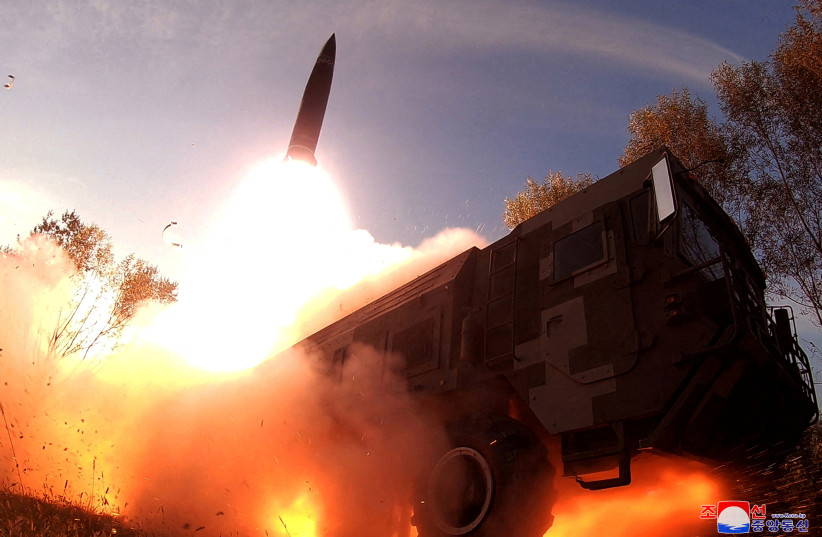North Korea continues to carry out missile tests that threaten peace in Asia. The tests have been increasing in recent weeks and it appears designed to test the resolve of South Korea, the US and other partners.
North Korea has been warned about a response by the US, South Korea and Japan if it conducts a nuclear test.
Russia seems keenly interested in the crisis developing with North Korea. Russian state media TASS wrote on Sunday that “North Korea fired four short-range ballistic missiles towards the Yellow Sea on Saturday, the Yonhap news agency reported, citing South Korean military sources.”
Russia’s media noted that the missiles flew some 130 km and that North Korea has stepped up its launches “amid the Vigilant Storm military exercise involving the US and South Korea. The drills were initially expected to end on November 4 but the parties decided to extend them to November 5 following North Korea’s launches on Thursday.”
Why is North Korea firing missiles now?
What’s really going on here? North Korea has a habit of conducting these kinds of increasing tests and provocations every few years, whenever it wants to wring concessions or get attention.

Like Russia’s invasion of Ukraine or Iran’s nuclear program, the North Korean threats are all about destabilizing the region and creating constant military tension.
It’s plausible to conclude that North Korea’s tests are at least in part driven either by backing from Moscow, or tacit understanding by the North that Russia’s illegal invasion of Ukraine has put wind in the sails of authoritarian regimes like Pyongyang.
<br>North Korean weapons to Russia?
Russia has vowed to expand ties to North Korea, according to reports back in August. More recent reports at The Washington Post say that North Korea is covertly supplying Russia with artillery.
North Korea has long been a hotbed of missile technology, seeking to work with Iran - and both borrow from historic Russian missile technology; and from China’s experience. This shows that Pyongyang’s missile launches do not happen in a vacuum; they are part of the larger nexus of missile developments that tie Iran to Russia.
Iran is now supplying Russia with drones and reports say missiles could also be on the list of procurement that Moscow has drawn up. Meanwhile, Tehran wants more support from Russia for its nuclear program. NATO is concerned about Iran supplying Russia with ballistic missiles. The Islamic Republic has also just acknowledged that it is supplying drones to Russia to use in Ukraine. Tehran also tested a satellite-carrying rocket over the weekend.
It’s possible to connect the dots here and see how the North Korean provocations are tied to Russia and Iran’s policies. Over the years the US has had different policies in regard to North Korea’s rocket launches. The US and partner countries don’t want a conflict to break out on the Korean peninsula, but they also want North Korea to be deterred.
Russia’s invasion of Ukraine has shown countries like North Korea that they can tear up international laws and a rules-based world order and do what they want. The recent rocket launches are part of that challenge.
